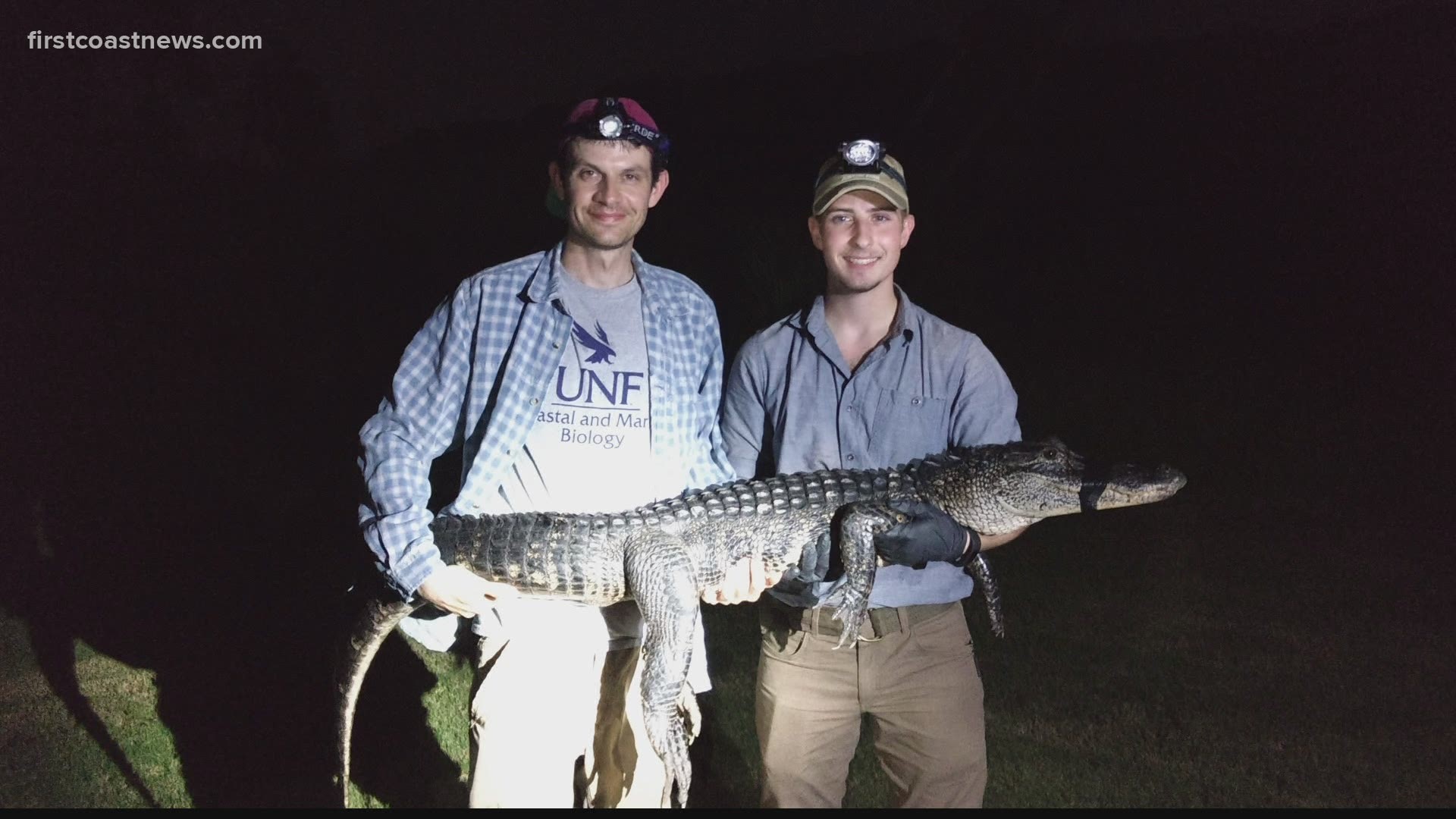JACKSONVILLE, Fla. — Development and humans are driving ancient creatures out of Jacksonville.
Urban alligators seem to be a rarity and a new study by a University of North Florida professor and graduate student tracked the number of alligators in the city’s tributaries.
The study found 93 alligators in 9 tributaries of the St. Johns River: Black Creek, Julington Creek, Doctors Lake, Ortega River, Arlington River, Trout River, Broward River, Dunn Creek and Clapboard Creek.
These tributaries are far enough from the mouth of the river that alligators actually do live in these waters. UNF Assistant Professor of Biology Adam Rosenblatt and his graduate student Eli Beal traveled through the tributaries by boat looking for gators and keeping track of how many there were and their size.
They did their research over the course of 2019.
“I love the idea that we are sharing our space with these big predators, big ancient predators. I think that is amazing and it makes my life feel richer," Rosenblatt said.
Rosenblatt says he wasn’t surprised to find that there were almost no adult alligators in the St. Johns tributaries. They only found one during their research. He says hunters and alligator trappers have most likely removed the adult gators because of their size.
Rosenblatt says gators are considered adults once they are 6 feet or larger.
The Florida Fish and Wildlife Conservation Commission has a nuisance alligator trapping program for gators at least 4 feet long and that cause a threat.
Rosenblatt says development is also scaring the gators away.
“This suggests to us that alligators don’t really like being in a human-dominated landscape," Rosenblatt explains. "That the more development that occurs in Jacksonville and the southeast, it could push alligators out of habitats that they like to be in.”
An alligator researcher with the FWC says “There are effects when we start altering these natural environments.” Rosenblatt says we should protect gators and help them live in these habitats.
“Alligators sort of keep everything in check," Rosenblatt said.
If the biggest predator leaves the tributary ecosystem, that will affect the entire tributary ecosystem.
How do we fix this? Rosenblatt says do not bother the alligators, do not feed them and stop developing on waterways that are their habitats.

